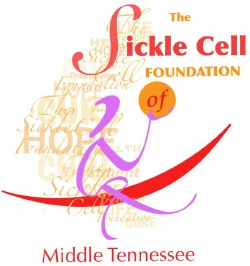What is sickle cell disease?
Sickle cell disease is a group of inherited red blood cell disorders. People with sickle cell disease have abnormal hemoglobin, called hemoglobin S or sickle cell hemoglobin in their blood cells. Hemoglobin is a protein in the red blood cells that carries oxygen throughout the body. Because normal red blood cells are round the hemoglobin S blood cells become sickle or crescent shaped causing difficulty passing through the small blood vessels. Sickle cell disease is the most common genetic disease in the United States. It’s estimated 70,000-80,000 Americans are living with sickle cell disease.
Are there different forms of the disease?
There are several different forms of the disease. The three most common forms of the disease in the United States are:
- Hemoglobin SS or sickle cell anemia
- Hemoglobin SC disease
- Hemoglobin Sickle Beta Thalassemia (sickle beta-plus thalassemia, sickle beta thalassemia)
People who have sickle cell disease inherit two abnormal hemoglobin genes, one from each parent. In almost all forms of sickle cell disease, at least one of the two abnormal genes causes a person’s body to make hemoglobin S.
What is sickle cell trait?
A person with sickle cell trait does not have sickle cell disease. People with sickle cell trait are generally healthy. However, the presence of sickle cell trait may impact his/her children in the future. A person with the sickle cell trait carries one abnormal hemoglobin gene inherited from one parent and one normal hemoglobin gene from the other parent. Usually sickle cell trait is the presence of hemoglobin AS.
If I do have sickle cell disease, how does it affect my body?
Sickle cell disease can cause low red blood cell counts, painful crisis episodes, strokes in children and adults, low immune system causing increase in infections, bone damage and necrosis, jaundice, gallstones, lung damage, pulmonary hypertension, kidney damage, priapism in males, eye damage, leg ulcers and delayed growth.
Who does sickle cell disease affect?
Sickle cell disease can affect people of any nationality. However, it disproportionality affects people of African descent. Currently newborn screening for sickle cell disease is mandated in the United States. 1 out of 12 African Americans are living with sickle cell trait and 1 out of 500 newborns are born with the disease.
A copy of the official registration and financial information may be obtained from Tennessee Secretary of State by calling 615.741.2286 or visiting their website at www.sos.tn.gov. Registration does not imply endorsement, approval or recommendation by the state of Tennessee.
Information Adapted from our resources:




